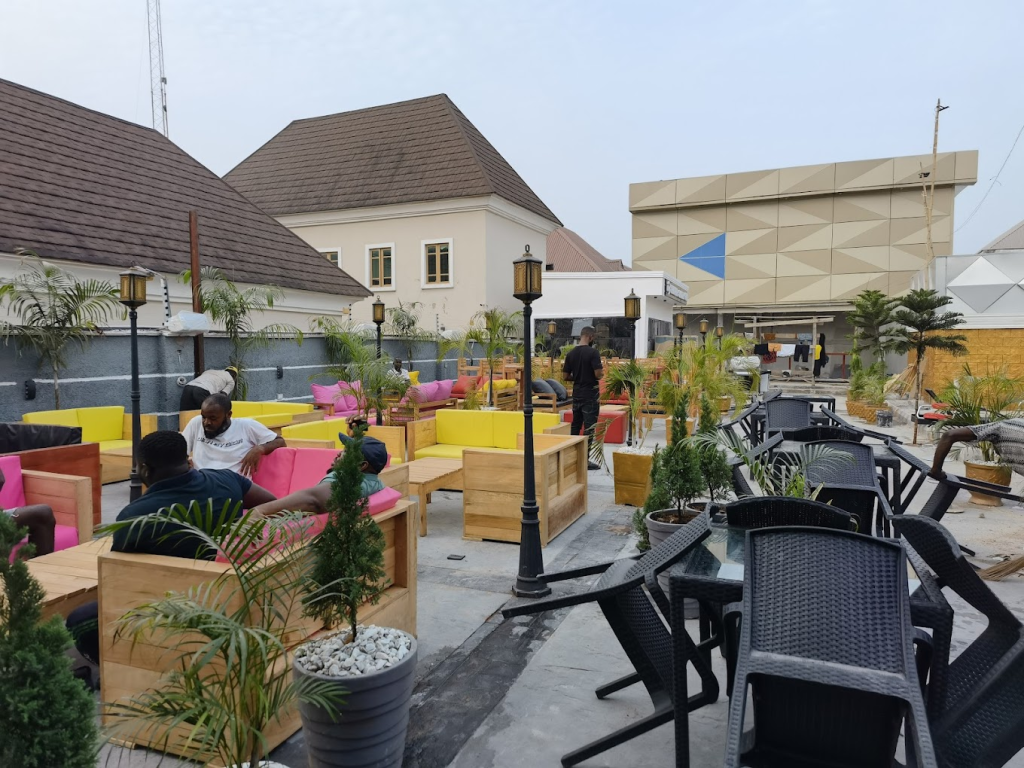Having spent over a decade in Asaba, I can attest to the significant shifts in the city’s lifestyle and its social undercurrents. Once known for its tranquil community and connection to Delta State’s rich culture, Asaba has transformed into a bustling city with a lifestyle influenced by rapid urbanization, economic disparity, and a deep-seated hustle culture. Today, Gen Zs in Asaba navigate an environment marked by high rents, few legitimate job opportunities, and a growing trend of cyber fraud and transactional relationships.
The sharp increase in living costs has placed added pressure on young residents. Rent prices, which were relatively affordable just a few years ago, have risen steeply, pricing out many locals. For young people trying to make a living in Asaba, finding housing has become a challenge, and the costs are exacerbated by the lack of economic opportunities. Stable jobs are rare, largely confined to government positions or corporations, which are often reserved for those with connections or family influence.

This lack of job opportunities has pushed many youths into the “Yahoo” or cyber fraud culture, seeking quick gains instead of long-term, traditional employment. For others, prostitution has become an avenue for survival, especially given the limited financial independence available to them. In conversations with locals, it becomes clear how these pressures affect Asaba’s social landscape. During a recent chat with Kingsley, a hotel host, I was surprised to learn that about 80% of the hotel’s clientele consists of Gen Z individuals. “We can’t stop them because management needs the revenue,” he explained. This sentiment underscores how the city’s businesses profit from the very issues that pose a social challenge.
Asaba’s nightlife has grown in recent years, further highlighting this transformation. High-end clubs, lounges, and events have become the go-to places for young people, offering them a taste of affluence and escape. Yet, for many, this lifestyle is unsustainable. As they see social media influencers flaunting lavish lifestyles, some young residents feel pressured to keep up, often turning to risky means to fund their desires. The influence of this “fake it till you make it” mindset perpetuates a cycle where young people chase unrealistic goals in a bid to escape economic hardship.
Another factor influencing Asaba’s new lifestyle is the global rise of the gig economy, which has provided some temporary relief for young people. With Nigeria’s high unemployment rates, many young Nigerians—including those in Asaba—turn to freelance and gig opportunities, from ride-hailing apps to remote writing or virtual assistant jobs. However, these roles are often unpredictable and lack stability. Without benefits or reliable income, young workers frequently juggle multiple gigs, which can lead to burnout and instability. According to studies, the gig economy does offer some flexibility, but it has left many young people financially insecure, reinforcing the lure of faster, high-risk alternatives.

Beyond economic pressures, there’s a growing disconnect in Asaba between generations regarding cultural values. The older generation tends to view the shift in Gen Z behavior with dismay, lamenting the decline in traditional values. They often express concern over how the younger generation prioritizes material wealth over the hard work and communal values that once defined Asaba. This generational divide is evident in discussions within the community, where elders frequently attribute the rise in transactional relationships and cyber fraud to a loss of moral direction.
Yet, the situation in Asaba is more complex than simply attributing the lifestyle shifts to a lack of values. Young people here are facing the same issues that many across Nigeria struggle with—high youth unemployment, inflation, and limited support for skill development. With the economy in turmoil and few genuine opportunities for advancement, the younger generation finds itself in a struggle to make ends meet. While older generations may criticize, it’s essential to consider the economic and social pressures that have created this new reality.

The portrayal of wealth and success on social media has also intensified Asaba’s lifestyle transformation. Young people are bombarded with images of influencers and celebrities displaying luxury items and expensive outings, creating a culture of comparison and a desire for quick wealth. For many, this idealized life appears only achievable through unconventional means, making illicit activities or transactional relationships seem more acceptable. This shift has not only redefined social norms but has also made it challenging for young people to stay motivated within the bounds of conventional employment.
Still, there are potential solutions. Government and local organizations can support skill-building initiatives that provide practical opportunities for young people to advance. Initiatives that focus on technology, entrepreneurship, and vocational training could empower Asaba’s youth, offering viable alternatives to the risky lifestyle choices that currently dominate the social scene. Furthermore, mentorship programs connecting successful individuals with the younger generation could offer guidance and realistic pathways to success.

Another possible solution could be creating more spaces for open conversations between generations. Addressing these lifestyle changes as a community could help bridge the generational divide and foster understanding. Elders could play a role in imparting values that resonate with today’s youth, while the younger generation could benefit from recognizing the experiences and lessons of those before them.
The new lifestyle in Asaba is a reflection of the complex challenges facing Nigeria’s youth at large. In a society where the cost of living rises faster than wages, and legitimate job opportunities are scarce, young people are often forced to make difficult choices. While the path forward is uncertain, the first step lies in addressing the economic and social pressures that drive these trends.
_________________________
Thank you for reading this composition. Kindly do well to partner with us at Inside Success Nigeria for training, workshops, and youth empowerment. Find other related articles on our website and follow us on Instagram @InsideSuccessNigeria for more updates.



Leave a Reply